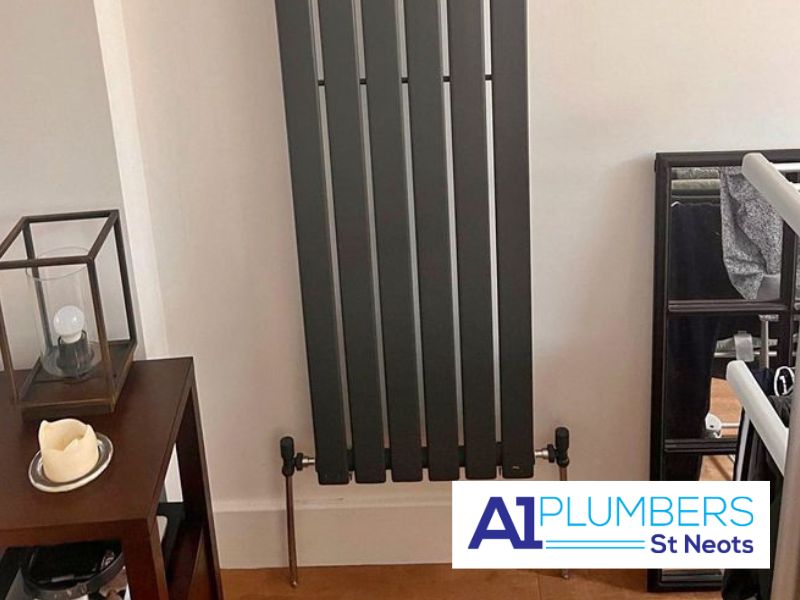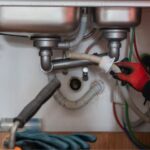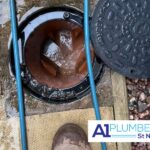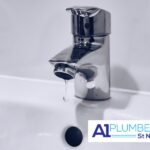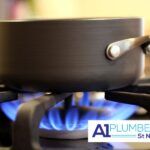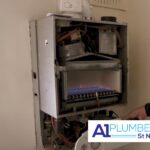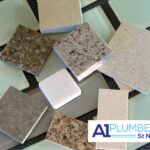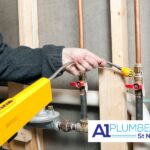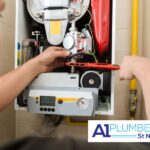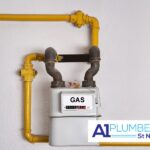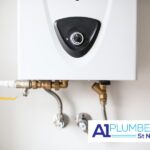Are you tired of constantly having air in your central heating radiators in the UK? It can be quite frustrating, right? But don’t worry! We are here to explain the reasons behind this annoying issue.
So, what causes air to get trapped in central heating radiators? Well, it could be a result of incorrect installation by individuals who thought they knew what they were doing. Or maybe air has accumulated in the system due to poor maintenance practices.
And let’s not forget about the corrosion and rust build-up that can cause problems in your radiators. Fluctuating water pressure can also contribute to this irritating problem.
But don’t fret, dear reader! We are here to provide you with precise technical knowledge so you can finally say goodbye to those bothersome bubbles in your radiators. And we’ll even throw in some humor to make the learning process more enjoyable.
So sit back, relax, and get ready to become an expert in getting rid of air from your central heating system once and for all!
Incorrect Radiator Installation
You rushed through the installation of the radiator, which has led to air becoming trapped inside and a heating system that is not functioning effectively. The installation of radiators requires precision and concentration. If you fail to properly open the radiator valves or neglect to remove any air pockets, you may find that your heating system does not distribute heat evenly or efficiently.
During installation, it is possible for air to become trapped in the pipes and radiators if the correct techniques are not followed. It is crucial to take your time and ensure that all connections are secure, valves are tightened correctly, and all air is released from the system before turning it on.
Therefore, in the future, do not rush through the process – take your time and do it correctly to avoid the troublesome issue of air in your central heating radiators!
Air Accumulation in the System
If your heating system is similar to a flowing river, the accumulation of air can be compared to debris getting trapped in its currents. When air enters the system, it tends to rise and gather at the top of radiators or in high points of the pipework. This can result in reduced heat output and even cold areas in your home.
To solve this problem, you need to consider three main factors that contribute to air accumulation:
- Insufficient insulation around pipes or radiators: This allows air to enter the system.
- Neglecting regular bleeding of radiators: This prevents trapped air from being released.
- System leaks: Any leaks in the central heating system can introduce air into the circulation.
By addressing these issues and ensuring proper maintenance, you can prevent unwanted pockets of air in your heating system and enjoy a warm and comfortable home throughout the year – without any floating debris!
Corrosion and Rust Build-Up
Imagine walking into your home on a cold winter’s day, only to discover that your reliable heating system has been affected by corrosion and rust build-up. It’s as if you found out that your favourite hat has been invaded by moths – absolutely unacceptable!
But don’t worry, dear homeowner, because I am here to provide some clarity on this irritating issue. You see, over time, the water in your central heating system can become contaminated with pollutants. These pollutants react with the metal surfaces of your radiators, causing them to corrode and form rust. And just like that unwelcome visitor who overstays their welcome during the holidays, this corrosion and rust build-up can trap air in your system.
Therefore, it is important to take note and be vigilant for any signs of rusty radiators. Make sure to give them a thorough cleaning to ensure that warm air can flow freely through your home once again!
Inadequate System Maintenance
Don’t allow insufficient maintenance to cause your heating system to deteriorate and impact its performance. Regular upkeep is crucial for preventing the entry of air into your central heating radiators in the United Kingdom. Here are some points that illustrate the importance of keeping your system in good order:
- Neglecting maintenance can result in air entering your radiators, leading to reduced efficiency and uneven heating in your household. Imagine this: one area feels like a tropical paradise while another resembles an Arctic wasteland – not exactly comfortable!
- Ignoring maintenance can also lead to expensive repairs in the future. Think of it as skipping regular check-ups with a doctor – minor problems can quickly escalate into major issues that require extensive fixes.
By investing time and effort into regular system maintenance, you will ensure optimal performance, efficient heating, and a cosy, warm home without any unexpected surprises (or extreme temperature changes!). So, take care of your heating system, because if you don’t… it may just leave you out in the cold!
Fluctuating Water Pressure
Ensure that your water pressure remains consistent to avoid any surprises with your heating system. Fluctuating water pressure is one of the main causes of air in central heating radiators in the UK. When the pressure drops, air can enter the system through small openings or leaks. This can result in irritating noises, reduced heat output, and an overall inefficient heating system.
How can you maintain stable pressure? It’s as simple as regularly monitoring your boiler’s pressure gauge and ensuring it stays within the recommended range. If you notice any changes, it may be time to bleed your radiators or seek a plumbing service for assistance. Remember, regulating the correct water pressure is crucial if you want to keep your central heating system running smoothly and prevent any unwanted air from entering.
Frequently Asked Questions
How can I prevent air from entering my central heating system in the first place?
To prevent air from entering your central heating system, install an automatic air vent. This device will act as a gatekeeper, ensuring that air bubbles are kept out of your radiators. It is important to properly balance your system and regularly bleed the radiators to release any trapped air. By following these steps, you will have a heating system that works efficiently and maintains the warmth in your home.
Can the accumulation of air in the system result in a decrease in heating efficiency?
Yes, air build-up in the central heating system can certainly result in reduced heating efficiency. Air bubbles act as insulators, preventing the hot water from circulating fully and distributing heat evenly. As a result, some radiators may not reach their desired temperature, leaving you with a less comfortable home.
Therefore, it is crucial to regularly remove any air from your system to ensure optimal warmth and comfort.
What are some signs that indicate there may be corrosion or rust buildup in my radiators?
Signs that may indicate corrosion or rust build-up in your radiators include discoloured water, a foul odour emanating from the system, and cold patches on the radiator surface. These problems can decrease heating efficiency and harm your central heating system. It is crucial to address these signs promptly to prevent further deterioration. Remember, detecting rust early is important – you do not want your radiators to become unintended works of art!
How frequently should I bleed the radiators in my central heating system?
On average, radiators in a central heating system should be bled at least once a year. However, the frequency may vary depending on factors such as the age of your system and its installation location. Bleeding the radiators is necessary to remove trapped air, which can cause cold spots and reduce their efficiency. By regularly bleeding your radiators, you can ensure even heat distribution throughout your home and prevent any chilliness.
Are there any specific maintenance tasks that I should perform regularly to prevent air from entering my radiators?
To avoid air from entering your radiators, it is important to regularly maintain them. Start by checking the pressure gauge on your central heating system to ensure it is within the recommended range.
Next, regularly bleed the radiators to release any trapped air. You can do this by using a radiator key or an automatic bleeding valve.
Be observant for any signs of leakage or corrosion that may allow unwanted air into your system. Stay alert and remove that air!
Check out some of our services below:

